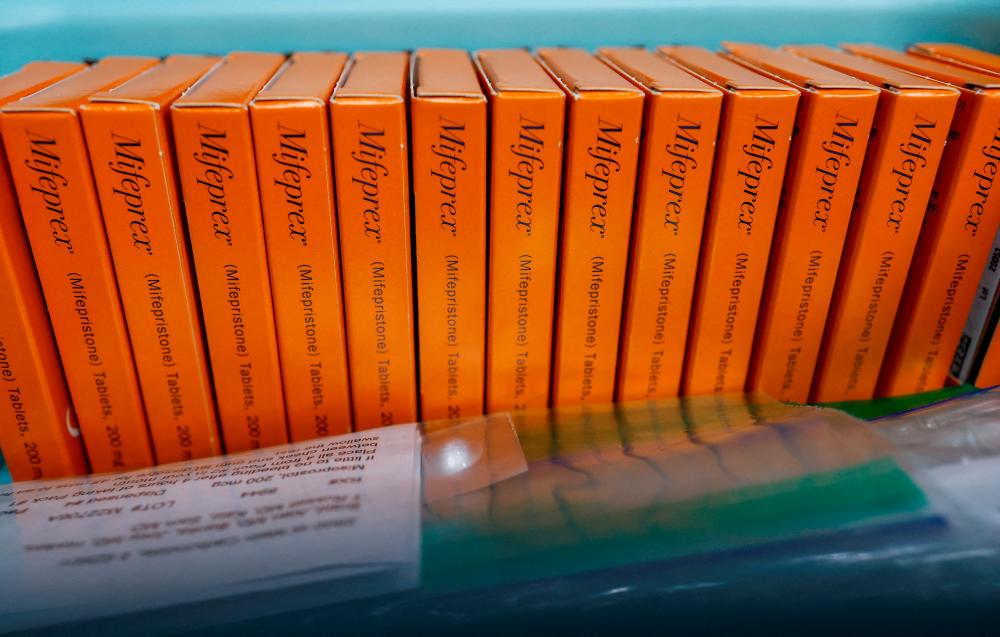PARIS: Abortions administered as pills sent in the mail are just as safe and effective as those provided in person, a US study said Thursday ahead of a Supreme Court ruling on restricting the medication.
Abortion pills have become the latest battleground in the fight over reproductive rights in the United States after the conservative-dominated Supreme Court overturned the landmark Roe v. Wade ruling in 2022.
The decision led to more than a dozen states banning abortion, while others severely restricted it.
The Supreme Court will hear arguments next month on a bid led by anti-abortion groups to restrict access to mifepristone, one of two pills used in medical abortions.
In 2021, as medical visits became more difficult during the Covid-19 pandemic, the US Food and Drug Administration (FDA) removed the face-to-face requirement for dispensing abortion pills, allowing them to be posted.
The case before the Supreme Court includes a call for this decision to be overturned.
The new study, published in the journal Nature Medicine, looked at data from more than 6,000 abortions using pills supplied by online clinics in 20 states between April 2021 and January 2022.
There were no “serious adverse events” in 99.8 percent of these medical abortions and no follow-up care was needed in 98 percent of cases.
Both figures are similar to those for abortion pills dispensed to patients in person at clinics and doctors' offices.
The study showed the FDA was right to allow abortion pills to be posted, said lead author Ushma Upadhyay, a public health and reproductive social scientist at the University of California, San Francisco.
“Our findings make it abundantly clear that the case at the Supreme Court is simply an attempt to restrict access to abortion care, even in those states where it’s legal,“ she said in a statement.
- 'Essential health service' -
The researchers also compared abortion consultations conducted by video call with those conducted by secure text message, finding that both were equally safe and effective.
These methods allow patients to protect their privacy while making abortion more accessible, they said.
“A ruling against this method and the FDA’s rigorous science review process would be a huge blow to the American public and make this essential health service harder to get,“ Upadhyay said.
The study has already been cited in a brief submitted to the Supreme Court, which has said it will hear oral arguments in the mifepristone case on March 26.
The court is expected to rule by the end of June -- four months before the US presidential election in which abortion is expected to be a major issue.
Medical abortions account for more than half of all pregnancy terminations in the US.
Mifepristone has been found to be safe and effective in hundreds of studies covering dozens of countries.
Last week, a study casting doubt on the drug's safety was retracted by its publisher.
The study, which was repeatedly cited by a federal judge who ruled against mifepristone last year, demonstrated “a lack of scientific rigour that invalidates or renders unreliable the authors’ conclusions,“ publisher Sage said. -AFP









